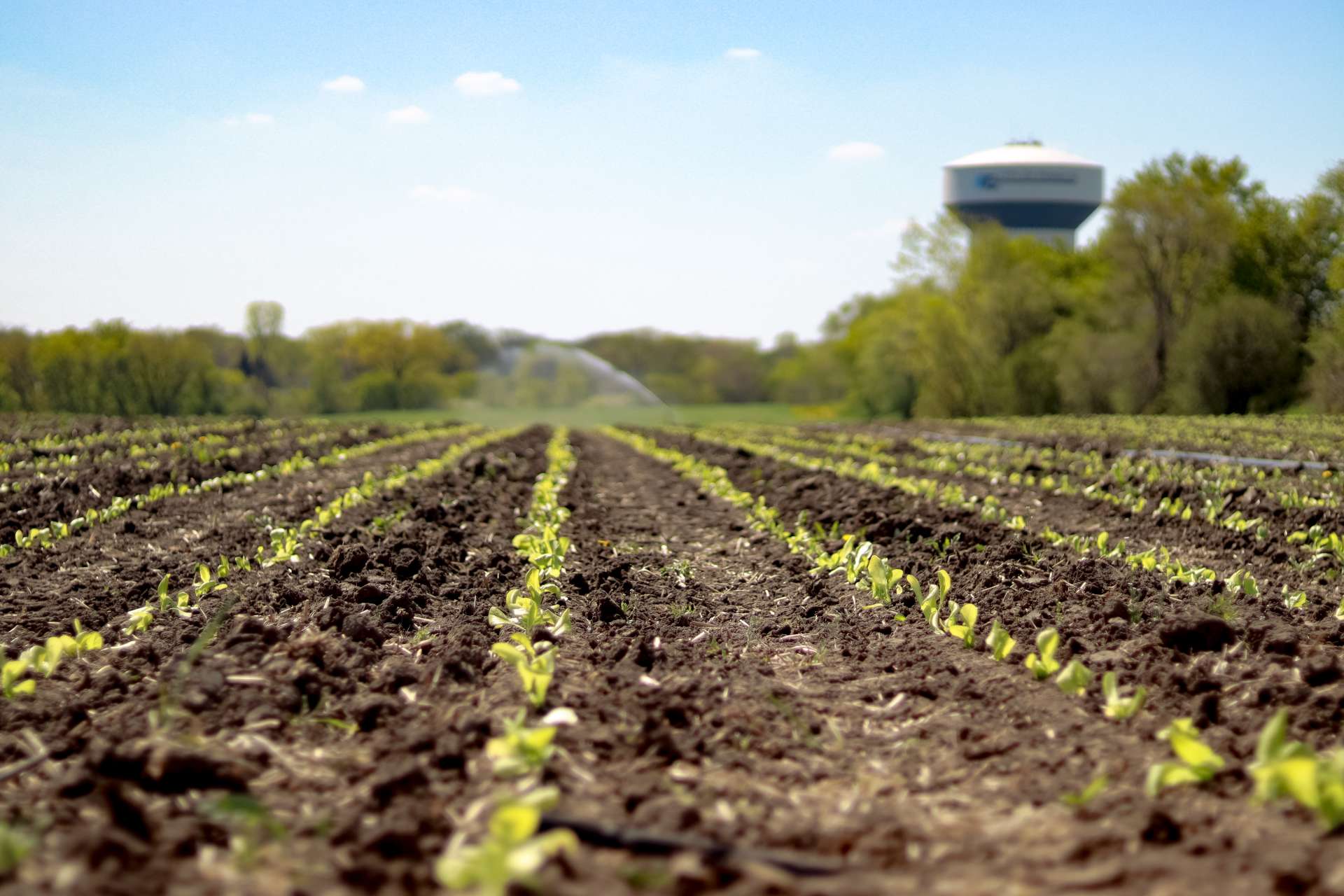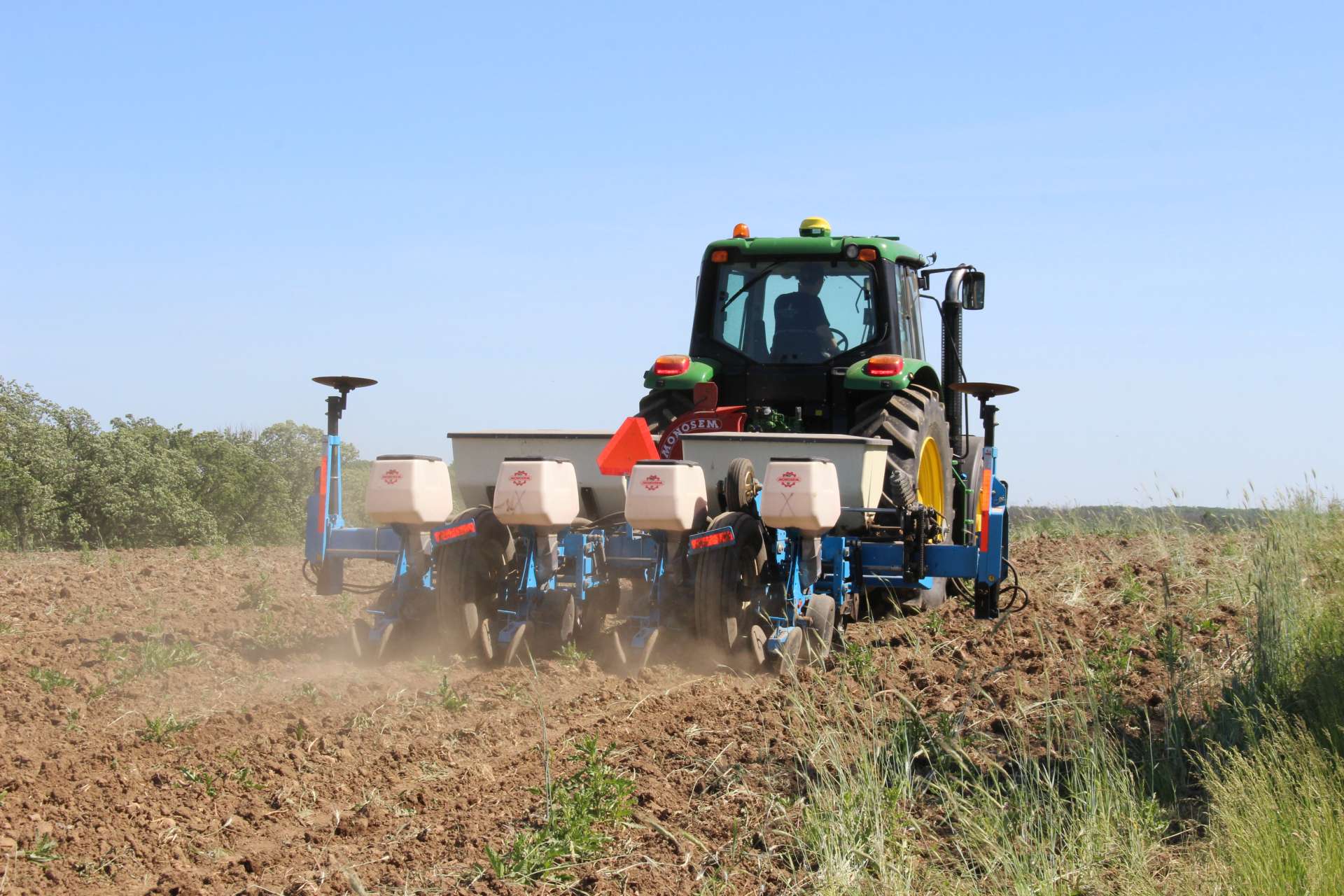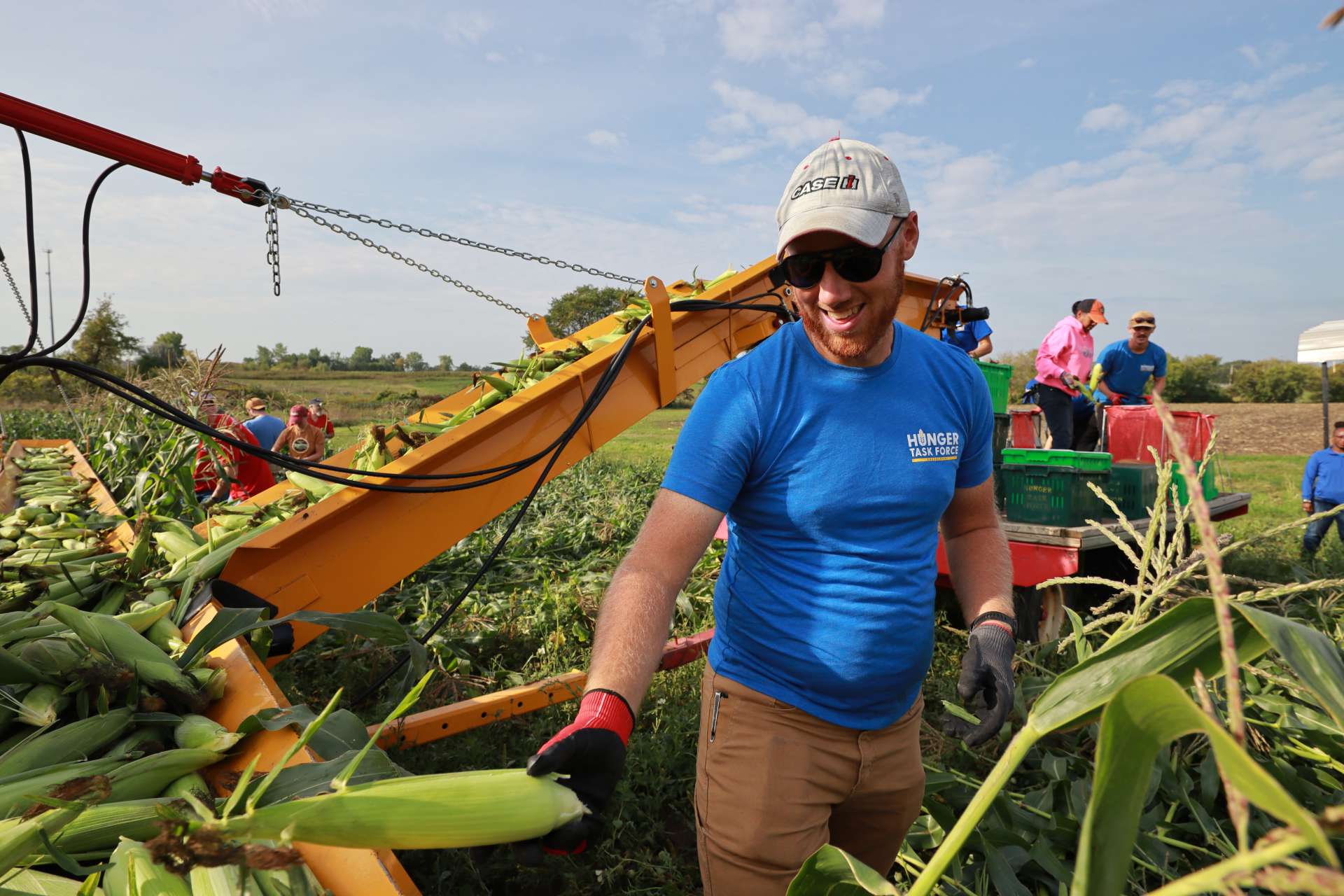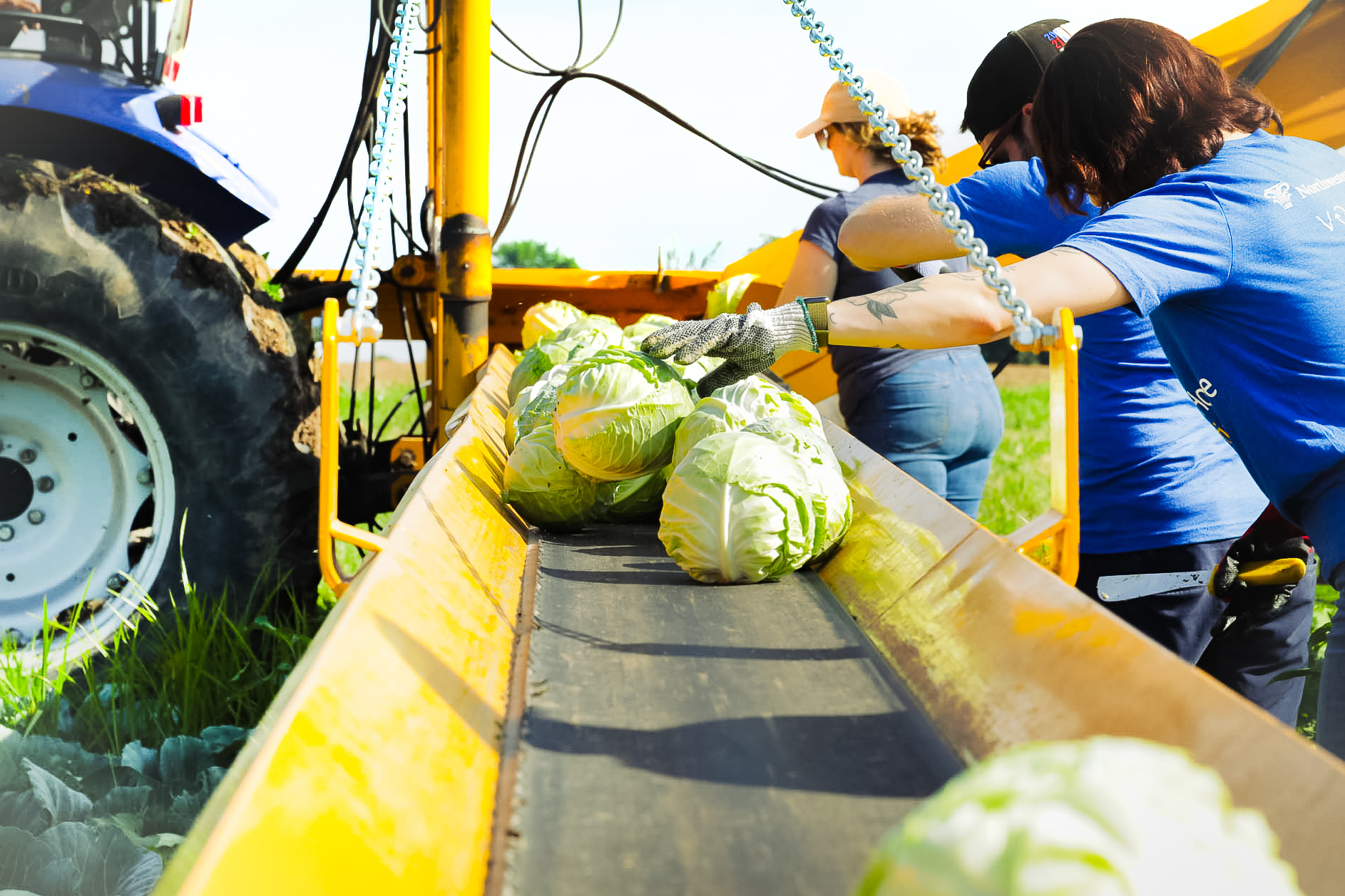Drought, Determination, and Dignity: How The Farm Overcame a Dry Season to Feed the Hungry

The 2023 growing season at the Hunger Task Force Farm brought both successes and challenges, highlighting the resilience and determination of the farm staff and the generosity of the community.
The Farm is an integral part of Hunger Task Force’s mission to feed Milwaukee’s hungry with dignity, providing healthful, fresh Wisconsin-grown produce to those in need. The main challenge our Farm team experienced this season was the unrelenting drought, which persisted from May to August this year. A deficit of 5-6 inches of rain throughout the region during the crucial planting phase posed a significant obstacle for Hunger Task Force farmers. Unlike past droughts that occurred later in the season – when crops already have time to grow strong root systems – this drought hit Wisconsin at the planting stage when crops need substantial water to establish roots. To combat the drought, The Farm ran irrigation seven days a week, sometimes for up to 16 hours a day.
Farm costs have also seen increases, with seed costs rising by 62%, fertilizer costs by 58%, and rising fuel expenses. Fuel costs presented a distinctive concern this year, given the need to constantly fill irrigation reels, tractors and trucks during the especially dry season. Despite these uncontrollable setbacks, the Hunger Task Force Farm managed to endure – thanks to our amazing farmers and nearly 6,000 volunteers – to distribute nearly 350,000 pounds of fresh fruits and vegetables to hungry families in Milwaukee.
With cabbage, winter squash, and collards still being harvested into the late fall, Hunger Task Force anticipates reaching 400,000 pounds by season’s end. This achievement was made possible through the dedication of Farm staff, the invaluable help of volunteers and the support of generous donors. Despite challenges, the Hunger Task Force Farm continues to evolve and adapt, guided by a commitment to addressing hunger in the community and ensuring the availability of fresh, culturally appropriate produce.
| Apples – 31,250 lbs. | Beans – 23,944 lbs. | Broccoli – 7,847 lbs. | Bok Choy – 4,040 lbs. |
| Cabbage – 85,012 lbs. | Cantaloupe – 3,196 lbs. | Collards – 20,791 lbs. | Corn – 110,765 lbs. |
| Cucumbers – 5,699 lbs. | Tomatoes – 25,675 lbs. | Lettuce – 15,021 lbs. | Mustards – 1,025 lbs. |
| Napa Cabbage – 1,800 lbs. | Pears- 754 lbs. | Peppers – 11,177 lbs. | Pumpkins – 26,752 lbs. |
| Red Cabbage – 1,002 lbs. | Turnip Greens – 1,161 lbs. | Watermelon – 1,716 lbs. | Winter squash – 30,000 lbs. |
| Yellow squash – 5,236 lbs. | Zucchini – 3,165 lbs. |
Apples – 31,250 lbs.
Beans – 23,944 lbs. (RECORD YEAR!)
Broccoli – 7,847 lbs.
Bok Choy – 4,040 lbs.
Cabbage – 85,012 lbs.
Cantaloupe – 3,196 lbs.
Collards – 20,791 lbs.
Corn – 110,765 lbs.
Cucumbers – 5,699 lbs.
Tomatoes – 25,675 lbs.
Lettuce – 15,021 lbs.
Mustards – 1,025 lbs.
Napa Cabbage – 1,800 lbs.
Pears- 754 lbs.
Peppers – 11,177 lbs.
Pumpkins – 26,752 lbs.
Red Cabbage – 1,002 lbs.
Turnip Greens – 1,161 lbs.
Watermelon – 1,716 lbs.
Winter squash – 30,000 lbs.
Yellow squash – 5,236 lbs.
Zucchini – 3,165 lbs.
In what The Farm lacked in rain, it made up for with generous donors and volunteers. Throughout the season, The Farm welcomed nearly 6,000 volunteers who played a vital role in seeding, planting, weeding, harvesting, and washing produce for the community in need.
The 2023 growing season was a testament to The Farm’s resilience and the unwavering support Hunger Task Force receives from volunteers and donors. For more information on how to support The Farm, please visit: www.HungerTaskForce.org/donate/farm/



